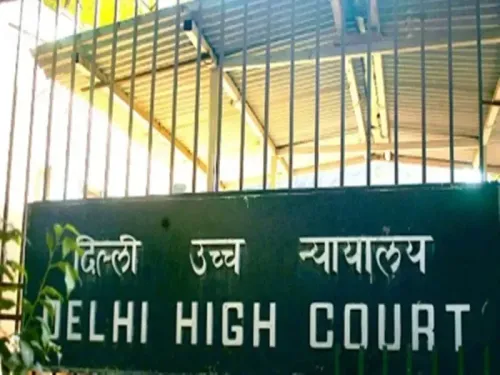Will there be any change in the status of tribal belts and blocks in Assam?

Synopsis
Key Takeaways
- No change in the status of Sixth Schedule areas in Assam.
- State government committed to indigenous rights.
- Construction of a memorial for Battle of Alabai martyrs underway.
- Historical struggles of the Ahom dynasty are being acknowledged.
- Government emphasizes dialogue and consensus with indigenous communities.
Guwahati, Aug 5 (NationPress) The Chief Minister of Assam, Himanta Biswa Sarma, asserted on Tuesday that the designation of the Sixth Schedule regions, along with the tribal belts and blocks in the state, will not be altered.
Speaking to the media, CM Sarma declared that these arrangements have been in effect since the time of independence and will persist unchanged.
"The status of the Sixth Schedule areas and the tribal belts and blocks will remain intact. These frameworks have been in place since independence, leaving no room for dispute over their existence," he remarked.
He highlighted the Tirap tribal belt as an example, where the state government has worked to secure land rights for the indigenous populace.
Similar initiatives, he noted, have also been undertaken for the Moran and Motok communities following discussions with the Tribal Sangha, a religious group located in Guwahati.
"We have implemented measures to ensure land rights for indigenous individuals residing in tribal belts and blocks, including regions such as Balipara and Dhemaji. These actions were executed through dialogue and collaboration, with no objections raised by the Tribal Sangha regarding our efforts," CM Sarma added.
He emphasized the government's dedication to protecting the rights of indigenous communities through ongoing discussions and consensus-building.
In a heartfelt homage to a significant episode in Assam's history, CM Sarma announced on Tuesday that the construction of a grand memorial for the martyrs of the Battle of Alabai is currently in progress.
This monument will honor the 10,000 Ahom soldiers who sacrificed their lives on August 5, 1669, during a fierce confrontation with Mughal forces near the Alabai Hills in Guwahati.
Describing the battle as "one of the most crucial chapters in Assam's history," the Chief Minister took to social media platform X to emphasize the state government's commitment to preserving the legacy of the Ahom dynasty, which ruled Assam for six centuries and valiantly resisted Mughal encroachment.
"Our government is actively constructing the Alabai memorial in honor of the 10,000 martyrs, and progress on this monument is currently robust," CM Sarma stated.
"We will persist in our focus on preserving and dignifying every aspect of Ahom history," he added.
The Battle of Alabai, although not widely covered in mainstream historical accounts, is of immense significance in the collective consciousness of the Assamese people.
The upcoming memorial is anticipated to serve not only as a site of remembrance but also as an educational landmark, showcasing the region's courageous resistance against imperialist forces.









